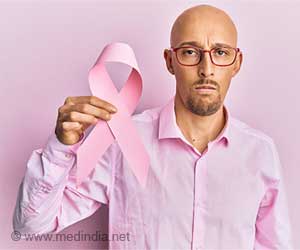Breast cancer is the most common cancer in young women. However, breast cancer recurrence does not increase in women who undergo fertility preservation (FP).
- Breast cancer is the most common cancer in young women
- Fertility preservation (FP) is safe for breast cancer women
- The risk of breast cancer recurrence does not increase in women who underwent FP
“It is not unusual that women with hormone-positive breast cancer or their treating doctors opt out of the procedures for fertility preservation because of the fear that these procedures will increase the risk of cancer recurrence or death. In some cases, women are also advised to wait 5-10 years before trying to conceive, and with increasing age, fecundity in all women decreases. More knowledge is therefore needed about the safety of procedures for fertility preservation at the time of a breast cancer diagnosis,” says the study's first author Anna Marklund, a researcher at the Department of Oncology-Pathology, Karolinska Institutet.
Does Fertility Preservation Increase Risk of Breast Cancer?
In this study, researchers at Karolinska Institutet and Karolinska University Hospital have investigated whether fertility preservation procedures in a breast cancer diagnosis entail an increased risk of disease recurrence or death. The study followed the women for five years on average.The registry study covers 1,275 women of childbearing age who were treated for breast cancer in Sweden between 1994 and 2017. Of these, 425 underwent procedures for fertility preservation with or without hormonal stimulation. The control group of 850 women was treated for breast cancer but did not undergo procedures for fertility preservation.
The women who underwent fertility preservation procedures and those in the control group were matched on age at diagnosis, calendar period at diagnosis, and healthcare region. The statistical data were taken from both nationwide healthcare registers and population registers with data on outcomes, disease- and treatment-related variables, and socio-economic characteristics.
Five years after treatment for breast cancer, the survival rate was 96 percent in the group that underwent hormonal stimulation to freeze eggs or embryos, 93 percent in the group that underwent procedures for fertility preservation who did not undergo hormone stimulation, and 90 percent in the group that did not undergo procedures for fertility preservation.
The researchers now plan to follow up on the results after another five years. The study was funded by the Swedish Cancer Society, Radiumhemmet's Research Funds, the Breast Cancer Association, Region Stockholm, and Karolinska Institutet. There are no reported conflicts of interest.
Source-Eurekalert
















